- About Us
- Policy Center
- Learn
- Press Room
- Blog
- Get Involved
- Donate
- Donate to J Street Online
- Make a Gift in Someone’s Honor or Memory
- Make a Monthly Gift
- Tax-Deductible Donations
- Giving by mail
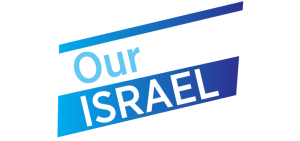
J Street’s “Our Israel” project spotlights the amazing Israeli groups who share our progressive vision for Israel, and who are helping build a society underpinned by the founding values of democracy, self-determination and equality which are enshrined in Israel’s Declaration of Independence.
It was 2015 and Izhar Carmon was knocking on doors in Rehovot, 12 miles south of Tel Aviv, to get out the vote in Israel’s national elections. Hope for change was pulsing through the streets. He went to a bar to watch the results afterward, hoping to watch the right-wing parties lose their grip on power.
They didn’t.
“There was so much hope that we were actually going to see change,” Carmon tells J Street. “At the end of the day, I looked around and I saw that no change was coming.”
Prime Minister Benjamin Netanyahu was re-elected. His right-wing Likud party gained even more seats than it already held.
“I realized then that I couldn’t rely on national electoral politics alone to create change — there had to be a grassroots movement at work to push electoral politics forward,” Carmon says. This realization led him to open his first center for community activism.
Tzedek Centers are community centers throughout cities in Israel that train and build networks of community organizers. From the single center Carmon first created six years ago, there are now seven centers across Israel. The group’s goal is to open one in every city across the country.
The organizers start work locally, with the ultimate aim of creating a more equal and just society. They do this through a focus on training, action, community building and leadership.
The goal of training courses is to drive organizers to action. “Our specialty in these courses is that we bring regular people who are members of the community,” says Lev Littman, Executive Director of the Tzedek Centers. “It’s not just the activists or politically engaged – it’s just regular people who want their community to be a better place.”
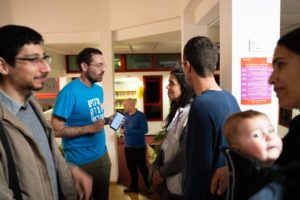
At 6 pm — or often later so that parents can put their kids to sleep before ducking out — groups of activists in training gather in Tzedek Centers throughout Israel, from Rehovot to Haifa, to talk about problems their communities face . The groups start at the local level, discussing issues from potholes to education, before digging deeper into the larger structural issues at play that may be exacerbating these problems. Tzedek facilitators aim to give participants the practical tools to make and fight for change.
After introductions through training sessions, the members form action groups. Participants create these groups themselves and begin work to tackle issues on both a local and national level.
“The reason we work at the local level is because we believe that Israel is in a deep state of what we call learned political helplessness’,” said Littman. “After twelve years without a change in government, Israelis had felt a level of hopelessness in their lives – whether it be the rising cost of housing, the economy or the peace process.”
There are currently fifty different action groups across the seven Tzedek Centers, on issues from the economy & employment to education, the environment, gender equity and more.
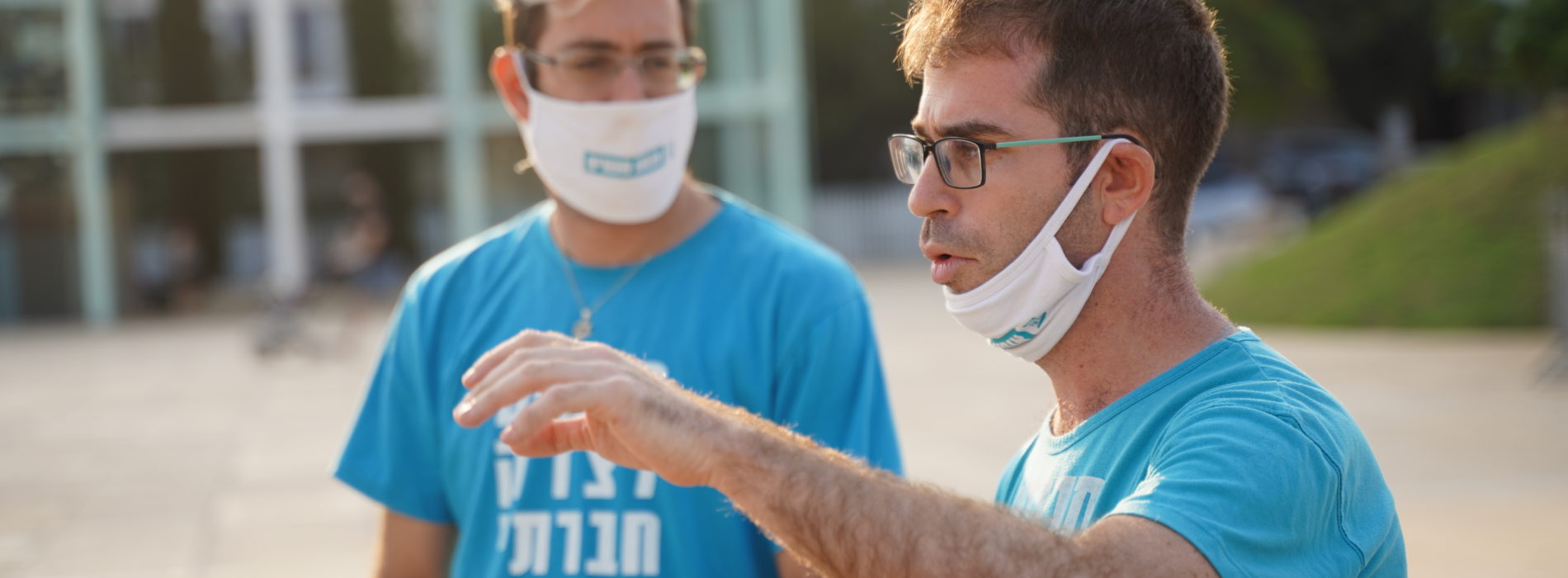
Community building is a central pillar of the Tzedek Centers. Community organizers are encouraged to join together beyond their relationships with one another and bring in friends and family.
They build community through celebrating holidays, attending lectures together, and using the centers to meet and have conversations about issues in their communities. The centers themselves serve as a meeting place to strengthen the communal fabric toward a common goal.
Tzedek Centers also place significant focus on leadership building. Community leaders and organizers take on local leadership roles on school boards, neighborhood committees, and more. Local Voice, a Tzedek Centers program, encourages community members to run for elected office as well. They currently have thirty members running for local city council, and expect that number to grow.
Tzedek’s model is focused on building up smaller wins to develop a sense of empowerment. It’s a theory of change that has proven to work. After only six years, hundreds of their members who started locally are now fighting and winning battles on the national level.
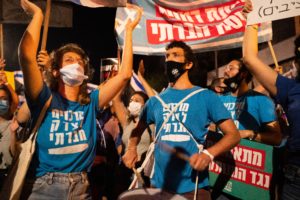
Tzedek – the Hebrew word for justice – is a value which informs the group’s entire approach to their work and their ultimate vision for a shared Arab-Jewish society. Theirs is a vision of a country where Palestinians and Jews can lead together to a better future, reshaping the politics, policies and every citizen’s relationship with Israel itself.
“We knew there had to be a shared connection between Jews and Arabs. Not only around food and tourism, but also around local and national politics,” Littman tells J Street.
It’s not just talk. In 2019, Tzedek began a partnership with an Arab activist movement called Ayjal. The Arab group, which started as a youth movement in 2006, has quickly expanded to include members of all ages in a shared fight for equality and justice.
Crises catalyze action.
While the COVID-19 pandemic halted many of Tzedek’s visions for partnership, the escalation between Israel and Gaza in May of 2021, alongside riots between Arabs and Jews in mixed cities, led to renewed action.
“There were many underlying reasons for those events, but one of the biggest was the learned political helplessness. It’s the feeling that there’s nothing you can do, that leads to the resort to violence,” says Littman. “At that point, we came together with our partners from Ayjal and decided that it was time to open a new center.”
That new center varied from the existing Tzedek Centers in a significant way. This center, in Ramla, southeast of Tel Aviv, is a shared center for Jews and Arabs with a facilitator from both groups. “That’s the most special thing about it. That we have the two leaders, but also that we have two movements leading together,” said Littman.
Often, the focus of Arab-Jewish cooperation is not only centered around issues of peace and conflict, but on issues affecting people’s day-to-day lives.
Construction accidents in Israel disproportionately impact both Palestinians and Israeli Arabs, with upwards of fifty deaths a year. So when an organizer from Rishon LeZion saw a construction accident occur in front of his eyes, he knew he had to do something.
His action group began meeting with politicians and creating a public pressure campaign for there to be government action. They made a WhatsApp group where people could share photos of unsafe construction sites that the Tzedek Centers would share with the media to pressure the companies to fix the conditions.
After months of their public pressure campaign, results became increasingly tangible – the government worked with the biggest construction companies in Israel to install better safety precautions. “One of the most important accomplishments of this campaign was that it was led by Jews and Arabs together,” says Carmon. “And this group has stayed together.”
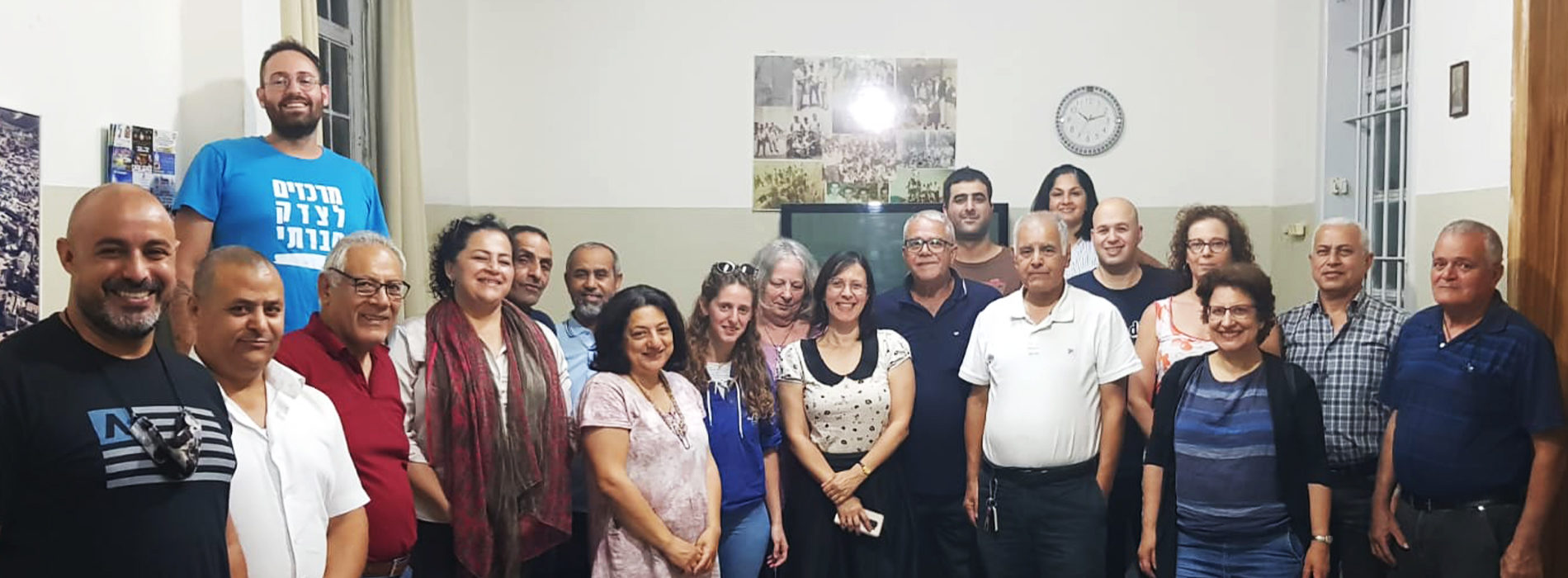
Brick by brick, center by center, community by community, Tzedek Center’s are building a future in which it’s the norm, not the exception, to have Jews and Arabs working together for political change. “If we could solve this learned political helplessness and empower more and more people, then this idea of a shared society could help us reach peace,” says Littman.